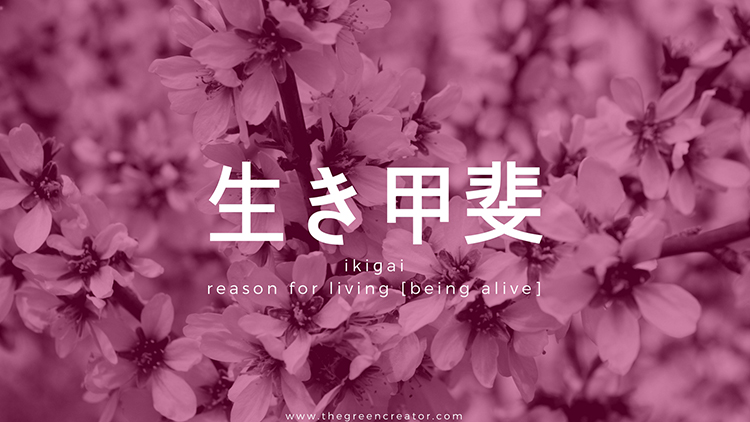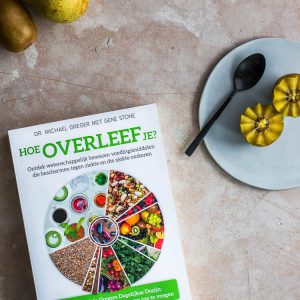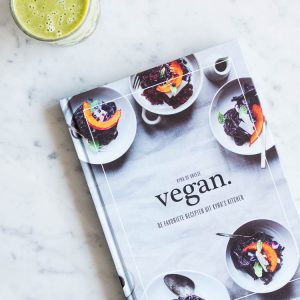After reading the book ”Blue Zones” by Dann Buetner I learned two things: ”Ikigai” and ”Hara hachi bu” (later more on later). These are very interesting terms when it comes to a long and healthy life. Don’t we all want to live a long, healthy and happy life? Frances Miralles and Héctor García did research on the secret of the elderly in Japan. Why do Japanese elderly become so extremely old in certain areas in Japan? What are they eating? What are they doing to stay active? How do they deal with stress? What does their social life look like? All of this is discussed in ‘‘Ikigai, the Japanese secret for a long and happy life”.
This post contains affiliate links. Read my full disclosure here.
” Only those who remain busy want to become hundred ” – Japanese proverb
What is ”Ikigai”?
The term ”ikigai” is explained in various ways. You can describe it briefly as: the reason why you get out of bed in the morning. It is the reason for your existence. The French might say ”raison d’etre”. The book also links to certain Western therapies (such as logotherapy) and may also be a question, such as: ”why don’t you commit suicide?” That’s a harsh question, but it’s forces you to really think what’s important in life. And right there lies the secret to a long and happy life. In the answer to this question you will find your own ikigai. This is one of the reasons why the inhabitants on the Okinawa island are getting so extremely old. On this Japanese island, there are more centenarians than anywhere else in the world. Not only are they old, but they are still active and happy, up until a very high age.
”We find our ikigai by concentrating on what is important, rather than what’s urgent. By constantly keeping an eye on what feels good, we are able to discover what our passion is.”- Mundo Urano
In this book, the term ikigai is translated as the bliss of always being busy. Ikigai is actually a combination of your passion, your mission and your profession. Your ikigai can be very clear, but also something you’re still looking for (which on its own may be your ikigai).
The elderly of Okinawa never retire. The best thing about your ikiga is that once you’ve found it, you don’t want to retire. Some 90 year olds say they have so many plans and don’t think about dying. They always keep having a purpose for which they get out of bed in the morning.

Hara hachi bu & Moai
An old Japanese proverb is: hara hachi bu. This means ”eat until you’re eighty percent full”. The Japanese elderly don’t overeat and believe that eating a little less than you need is healthier.
Another beautiful phrase is ”moai”. This represents a group of joined people with the same interests. In this group the elderly are always there for each other when they need help or support. Whether you have financial problems or need help with something at home, you can always count on your moai.
Good advice
What I appreciated in the book were the advices that were given (especially in the beginning and at the end of the book). The conversations with the elderly were also interesting and could have been, in my opinion, a bit longer and more comprehensive. Some good advices:
- Realize that the only thing that really exists and what we can control is the present. So we should not worry about the past or the future, but appreciate the things that are here right now. Keep in mind that things/persons are not here forever with us, but not in a way that will make you worry about it. The realization that everything/everyone is temporary with us should actually lead to a greater appreciation for life.
- Keep resilient. Resilience is the ability to get through a setback and to overcome it positively. You can do this for example by living in the moment, in Japanese this is called: wabi-sabi. This means that you should try to see the beauty of everything that is perishable, changing and imperfect.
“The things we love are like leaves on a tree, they can fall anytime when the wind pops up.” – Emperor Marcus Aurelius
How to age healthily?
On the island of Okinawa in Japan, most centenarians live per 100,000 inhabitants. In this book, they share their pieces of advice on how to stay and get old healthily.
- Limit stress consciously: Stress has a negative impact on our health. The writers share some tips on how to better manage stress. Meditation is an example to reduce stress, but also living consciously in the moment during small daily tasks can help.
- Stay physically active: The writers explain that a sitting existence is the ”enemy of staying young”. They share a few tips to move more on a daily basis. Walk to work or walk for fun for at least twenty minutes a day. Don’t use an elevator or escalator, but use your legs. The writers say: moderately intensive moving your body equals a longer life.
- Sufficient rest and sleep is important.
- Nutrition: A healthy diet is of course very important. The diet on Okinawa is also called the ”wonder diet”. It’s for example important to eat a variety of foods and not to overeat. The centenarians eat hardly any sugar. Often only 1x per week and then they choose cane sugar. They eat a lot of tofu and sweet potatoes and about 300 grams of vegetables per day. They eat a variety of foods and mostly plant-based. They also eat grains on a daily basis and eat small portions of everything several times a day.
- Strong social ties with family/friends/neighbors is important. On Okinawa, the moai groups were created to provide a social network. The elderly in these groups spend a lot of time together by meeting regularly and supporting each other in difficult times.
- Stay mentally strong: It’s important to keep using your brains. This can be done by brain training or by looking for new situations.
- Go out in the nature, smile and be grateful.
What could have been better
What I found a missed opportunity was the fact that the writers didn’t include a resource list in the book with references. Many of their statements can be backed up with books and studies. I think the addition of sources would have made their message even stronger.
Also, it was sometimes difficult to determine whether the book was about how to get old healthily instead of finding your ikigai. I have no problem with the topic ”healthy aging” (it’s my favorite topic), but I can imagine that readers may wonder sometimes: is this a book about finding your inner happiness or about healthy aging? I will explain this with an example. The book contains a great number of pages with explanations and illustrations on how to do certain exercises (such as the sun salutation, qi gong and tai chi). As this is a thin book already, I found this to be a bit unnecessary and too far away from the subject: ikigai/ finding your life purpose.
”All is good” – Jeanne Calment (122 years)
My conclusion is that this book is a nice, entertaining book that reads very easily and quickly and can certainly motivate you to live healthier. I’ve learned some nice tips. However, if you want to read more about the topic of centenarians and if you’re interested in their lifestyle, I can recommend the book ”Blue zone”.
I wouldn’t go so far by saying that this book will help you to find your own ikigai. This is something very personal and this can be something very big or something very small. This book is not really about that. However, it gives you an idea of how it feels once you’ve found it and explains why it’s so healthy. I can also recommend this book if you’re looking for great insights and inspiration to live healthier and more positive. There might have been some more ”ikigai tips” in this book, but nevertheless this book is a great addition if you love self-help books with an emphasis on health.
Microflows & my ikigai
Ikigai is doing something where your heart is and that will get you into a flow. Ikigai can also be a microflow, where you enjoy daily routine tasks like doing the dishes. For this reason, Bill Gates for example does his dishes every night. It helps him to relax and he tries to do it better every day. In a better order for example by rules that he made up himself. Your ikigai does not have to be a big mission to change the world, but something you like, what you do everyday and what gets you into a flow.
My ikigai is without a doubt cooking, writing and photography. If I do this and the doorbell rings I need 5 seconds to get back on earth again. I completely forget about time and sometimes even where I am. I totally get into my flow. That’s clearly my ikigai and I’m grateful that I’ve found it.
And what about you? Are you still looking or have you found your ikigai?
”Ikigai, the Japanese secret for a long and happy life”.
$ 11.75
Publisher: Penguin Books (August 29, 2017)








